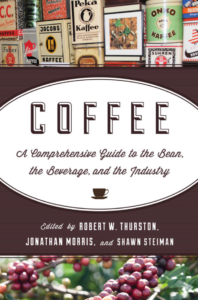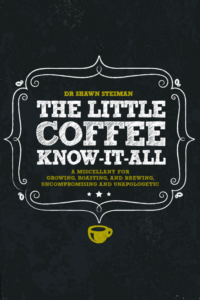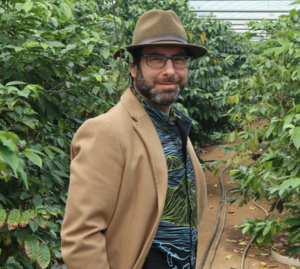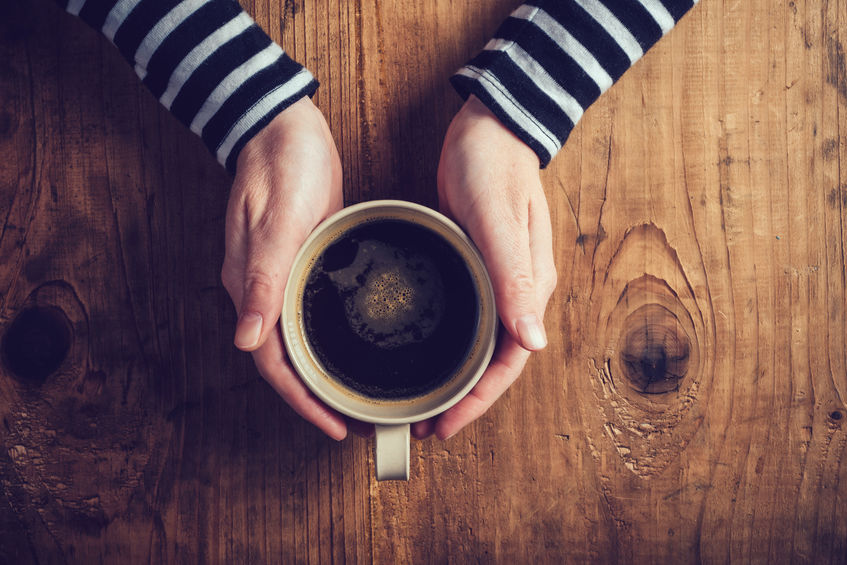Americans love their java in the morning. And a couple of cups with lunch. Maybe one more later to get through the end of the day. Okay, Americans just plain love coffee, period. It’s why, according to Reuters, 64 percent of Americans drink at least a cup of coffee every day with nearly 80 percent brewing it at home. It’s then not surprising there’s so much uncertainty surrounding the beverage regarding its health benefits or drawbacks and how to prepare it properly. So WellWell brought in an expert. Shawn Steiman, the author of Coffee: A Comprehensive Guide to the Bean, the Beverage, and the Industry and The Little Coffee Know-It-All, recently chatted with WellWell about the nitty gritty of the famed liquid and how best to brew it.
Due to it being so widely consumed, there’s a lot of misinformation out there about not only coffee’s negative impacts but coffee drinking benefits. What’s the largest misconception about coffee and the impact it has on the human body?
There certainly are plenty but one that always jumps out is coffee being dehydrating. I can assure you that coffee is not dehydrating.
 What role does the way you prepare coffee (adding milk or sugar) play in its impact?
What role does the way you prepare coffee (adding milk or sugar) play in its impact?
Not any in terms of hydration because the percentage of the beverage is so small. Adding a little bit of sugar shouldn’t make a difference and milk is mostly water itself. Of course, milk can have a decent amount of fat and sugar owns a laundry list of negatives but in moderation, I think it’s mostly harmless.
But do you think a lot of the negative effects people associate with coffee are more of a result of milk or sugar and less of the coffee itself?
Oh no, not at all. In terms of the real problems coffee may cause, there’s anxiety, lack of sleep and jitteriness. Too much caffeine can obviously cause these things, but only after over-consuming it. But most people can listen to their bodies and know when to stop. I think, by and large, coffee is health neutral with some promising benefits.
What is the best-tasting coffee?
Taste is obviously a subject and there is no one right or better way to enjoy coffee. That being said, there is clearly some taste variance due to preparation. I often compare it to beer. As a society, it may seem easy to say a microbrew is better than a naturally brewed beer like Budweiser, but it’s not that simple. If it were, Budweiser wouldn’t be nearly as popular as it is in comparison to microbrews. It’s similar to coffee, a naturally grown brew is not necessarily better than Folgers. They’re just different. Some who really want to explore taste and experience unique flavors may tend to go for the stuff that’s more complex, carefully crafted and expensive. But I know lots of people who are perfectly happy drinking their Folgers every day. It’s reliable and familiar. 
In both your books, you speak on the various ways coffee can be prepared and how that can impact its taste. Why do different methods produce different tastes even if you’re using the same coffee?
There are a few reasons, but I think the most crucial is the temperature of the water. Water temperature has a huge influence on the taste because warmer liquid extracts differently and more efficiently than colder liquids do. With a standard coffee pot, the waters generally brews at around 175 degrees Fahrenheit, but when you use other more manual methods, like a French press, you have more control over the temperature and can boil it to a much higher temperature. The range we always recommend is between 195 and 205 degrees Fahrenheit. But again, it’s obviously subjective. There’s no right answer.
 How about the coffee itself, in The Little Coffee Know-It-All you also mention the importance and impact of coffee being 100% arabica. A lot of people don’t really know what that means but they can tell it has a different smell and different taste.
How about the coffee itself, in The Little Coffee Know-It-All you also mention the importance and impact of coffee being 100% arabica. A lot of people don’t really know what that means but they can tell it has a different smell and different taste.
Coffee traces its origins to a species of genus known as Coffea. There are 124 identified species of this genus, one of which has a weird history, but we think tends to taste great. That’s coffea arabica. Coffea arabica is genetically different than all the others because it hybridized in a way that gave it twice as many genes as most the other species in the genus. It just tastes different. Since it’s so unique, we think it tastes better.
How does it compare to coffees that may not be 100% Arabica?
Another species of the genus is called coffee canephora, also known as robusta. It’s commonly grown, I think it amounts to roughly 30 or 40 percent of coffee production. Robusta tends to have more caffeine per unit weight and is a little more resilient against pests so it can grow in warmer climates. Therefore, it’s easier to grow but tends not to taste as good. So, a coffee snob is not always going to go for a canephora. The issue is a lot of companies started realizing they could sprinkle in the cheaper robusta to cut costs but it often scarifies the taste.
Obviously, you’re a coffee champion. Is that fair?
Well, I like coffee. But I think of myself as a coffee realist. It’s important to know the good and the bad and when too much is simply too much.
 About Shawn Steiman
About Shawn Steiman
Shawn Steiman holds a Ph.D. from the University of Hawaii-Manoa specializing in coffee studies. Steiman frequently lectures and conducts workshops with farmers and the general public on coffee-related topics. He has written three books on the subject. He is also the CEO of GROK Coffee and Owner of Coffea Consulting.
Learn More At












